After attending the High Tech High Fall Residency in mid-October, the project-based learning immersion experience inspired me to immediately start a project. French 3 students were tasked with building original board games that would target a few different skill and content areas (giving directions, explaining rules, describing differences between francophone and American cities). The class used the language they had already acquired to discuss board games that they liked and didn’t like, and used that discussion to develop a list of vocabulary and grammatical structures necessary for describing the properties and processes of those games. The discussion also gave way to criteria for a good board game, which was later used to assess their success in creating one of their own.
At each step of brainstorming, prototyping, revising, rebuilding, and so on, students directed their own work in small groups and were individually responsible for ensuring the quality of their game. The peak of the project came when each group presented their work to the Rockhurst French 2 class, who got to spend a period learning to play (and playing!) an original french-language board game. Students from both classes reported that using French in an authentic context helped them to both learn new concepts and feel more comfortable using the language they had already acquired.
The following reflection is from Michael Navato, French 3 student. English translation can be found past the images.
Bonjour et bienvenue sur mon blog au sujet des activités de Rockhurst! J’écris aujourd’hui au sujet d’un projet que Français 2 et 3 ont participé. Il y a deux semaines, Madame Lane commençait une unité en Français 3 au sujet des jeux de sociétés. L’objectif principal était d’apprendre par une expérience interactive et pratique. Ici, Français 3 a créé des jeux pour Français 2 à jouer!
Un objectif pour notre cours, nous devons à penser comment donner les instructions intermédiaires. Par exemple, donner les directions, expliquer une recette, ou expliquer les règles d’un jeu de société. Nous avons séparé en groupes pour un exercice: expliquer un jeu du quel nous connaissons déjà les règles. Mon groupe a choisi “Apples to Apples” (Anecdote: En français, l’expression idiomatique est en réalité “Pommes d’Oranges).
L’expérience m’a donné plus de confiance de donner des directions et la répondre aux questions en français.
Ensuite, nous nous sommes regroupés. Ian Atwater, Cole Williams et moi avons chaque décidé de donner une idée. Aucune idée était une mauvaise idée, dit Madame, alors après un peu du compromis et un peu des disputes (dis, çe arrive!) nous avons terminé un premier brouillon de notre jeu de style trivial, “Croissantland”, un portmanteau de “Candyland” et des délicieuses gourmandises françaises.
Après trois révisions et beaucoup de temps et travail dans le MakerSpace, le projet était fini. Nous l’avons présenté aux étudiants de Français 2, et le jeu a été donné de bonnes critiques! L’expérience m’a donné plus de confiance de donner des directions et la répondre aux questions en français. Pour les étudiants en Français 2, le jeu de société ÉTAIT au sujet du monde francophone, donc s’ils ne s’amusaient pas, ils apprenaient au moins une chose ou deux choses de la Fête des Lumières ou la belle île de Martinique!
Alors, c’est tout!
-Michael
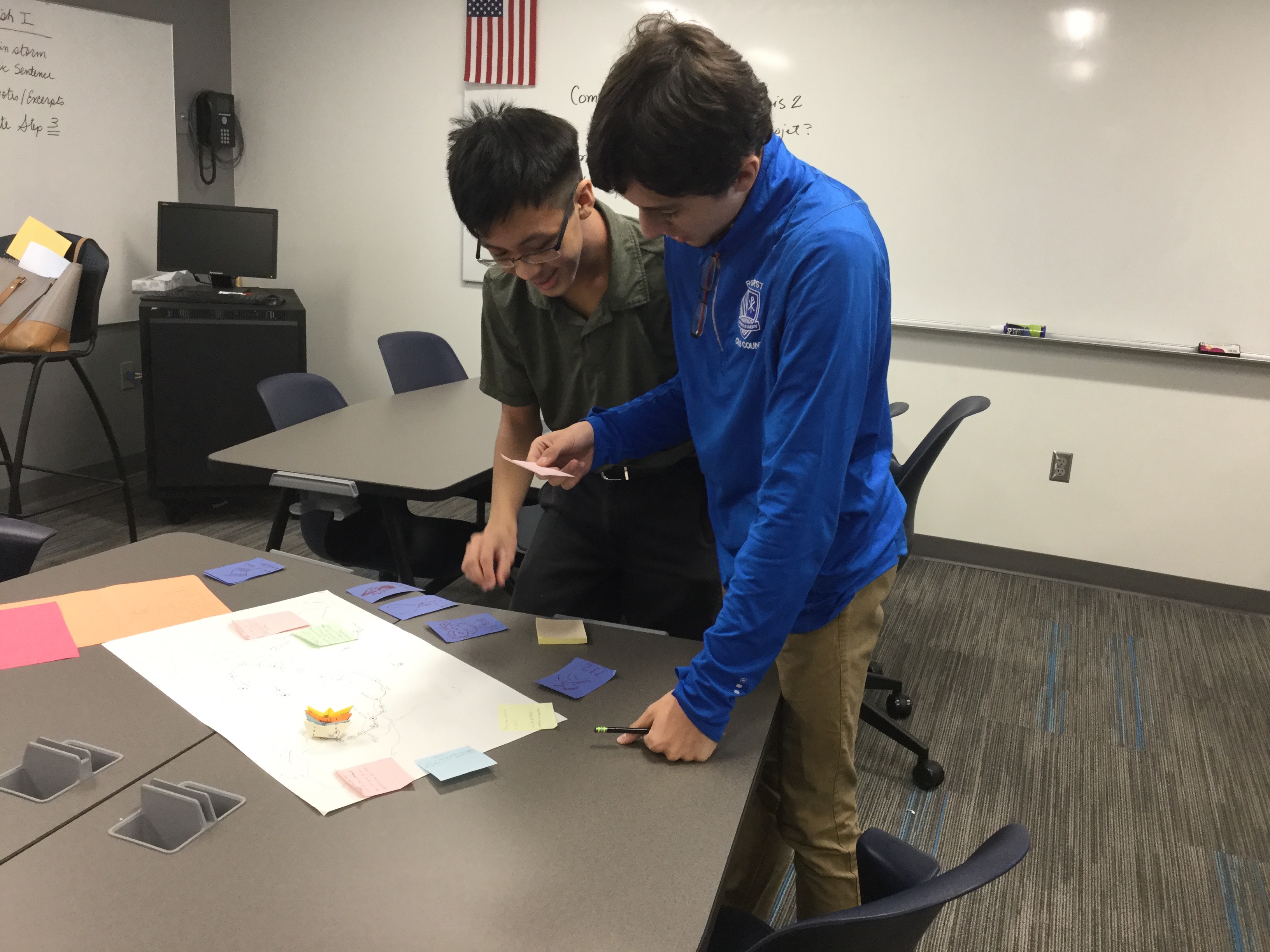
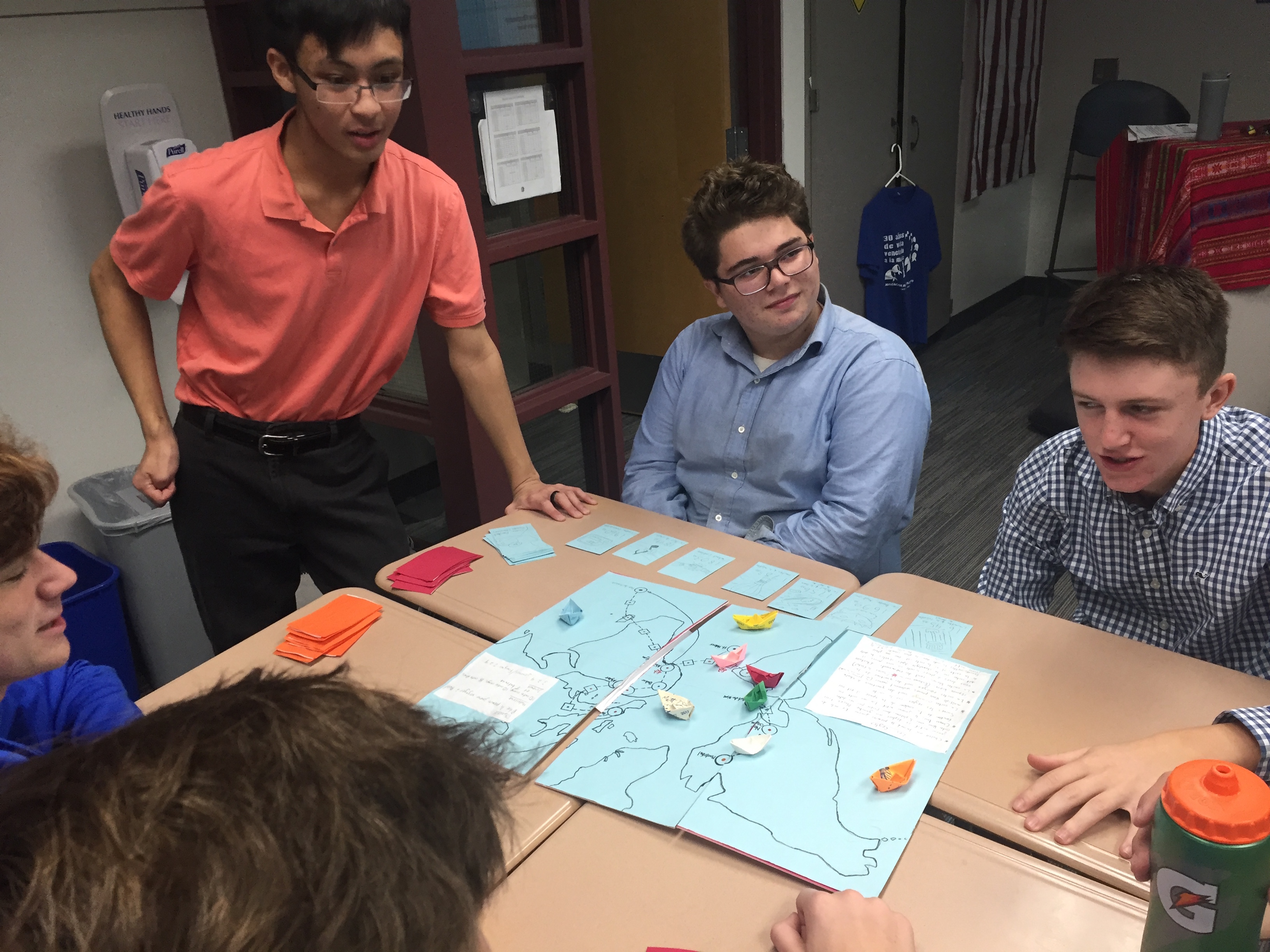
Hello and welcome to my blog about Rockhurst activities! Today, I’m writing about a project French 2 and 3 participated in! Two weeks ago, Madame Lane started a Unit in French about board games. The main goal was to learn from an interactive and hands-on experience. In this case, French 3 made board games for French 2 to play!
One of our objectives in our class is to know how to give some intermediate level instructions. For example, giving directions, explaining recipes, or explaining the rules of a game. We split into groups for a warm-up exercise: explain a game we already know the rules to. My group chose Apples to Apples (Fun Fact: in French, the idiomatic phrase is actually Apples to Oranges).
The experience gave me more confidence in presenting directions and answering questions in French.
Then, we grouped together. Ian Atwater, Cole Williams and I all decided to give an idea. No idea is a bad idea, says Madame, so after a little compromise and a little bit of arguing in the group (hey, it happens!) we finished a draft of our trivia-style game, “Croissantland”, a portmanteau of “Candyland” and delicious French baked goods.
After three revisions and a lot of work in the MakerSpace, the project was finished. We presented it to the students in French 2, and it was given good reviews! The experience gave me more confidence in presenting directions and answering questions in French. For the students in French 2, the board game WAS about the Francophone world, so if they didn’t have fun, they learned a thing or two about the Festival of Lights or the Island of Martinique.
Well, that’s all!
-Michael
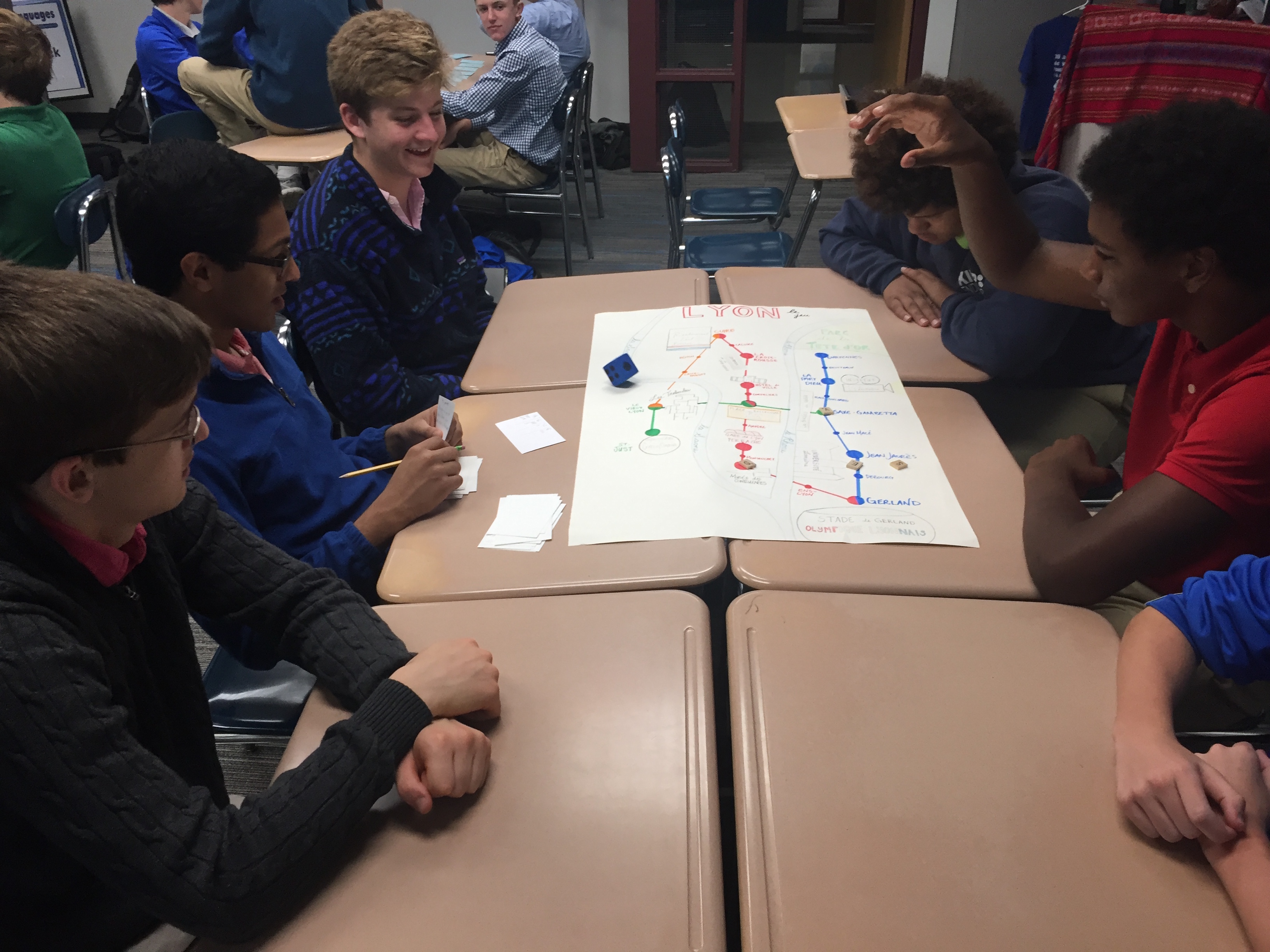
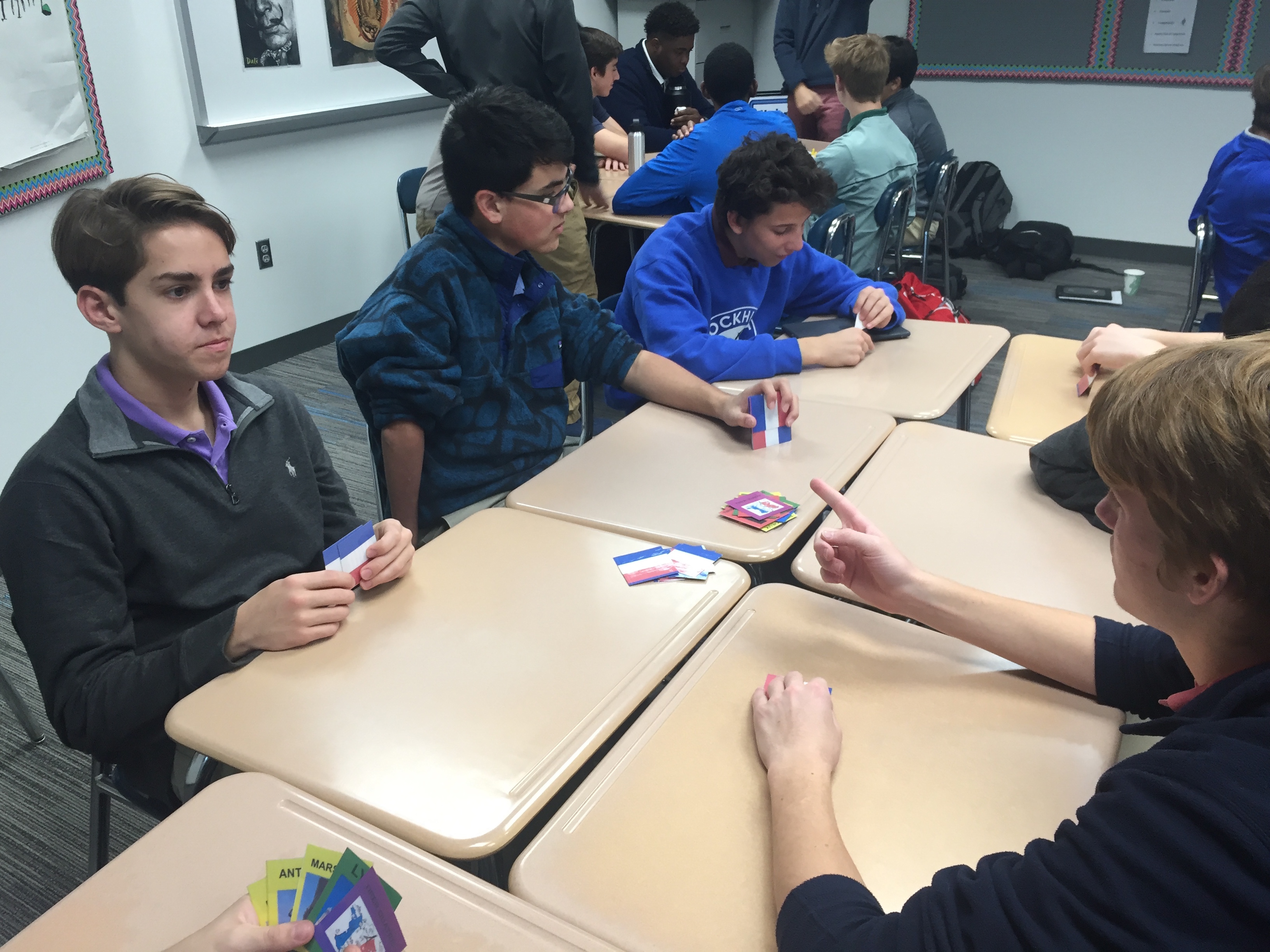
STEAM-Blog/img/FBG2.JPG
Gallery



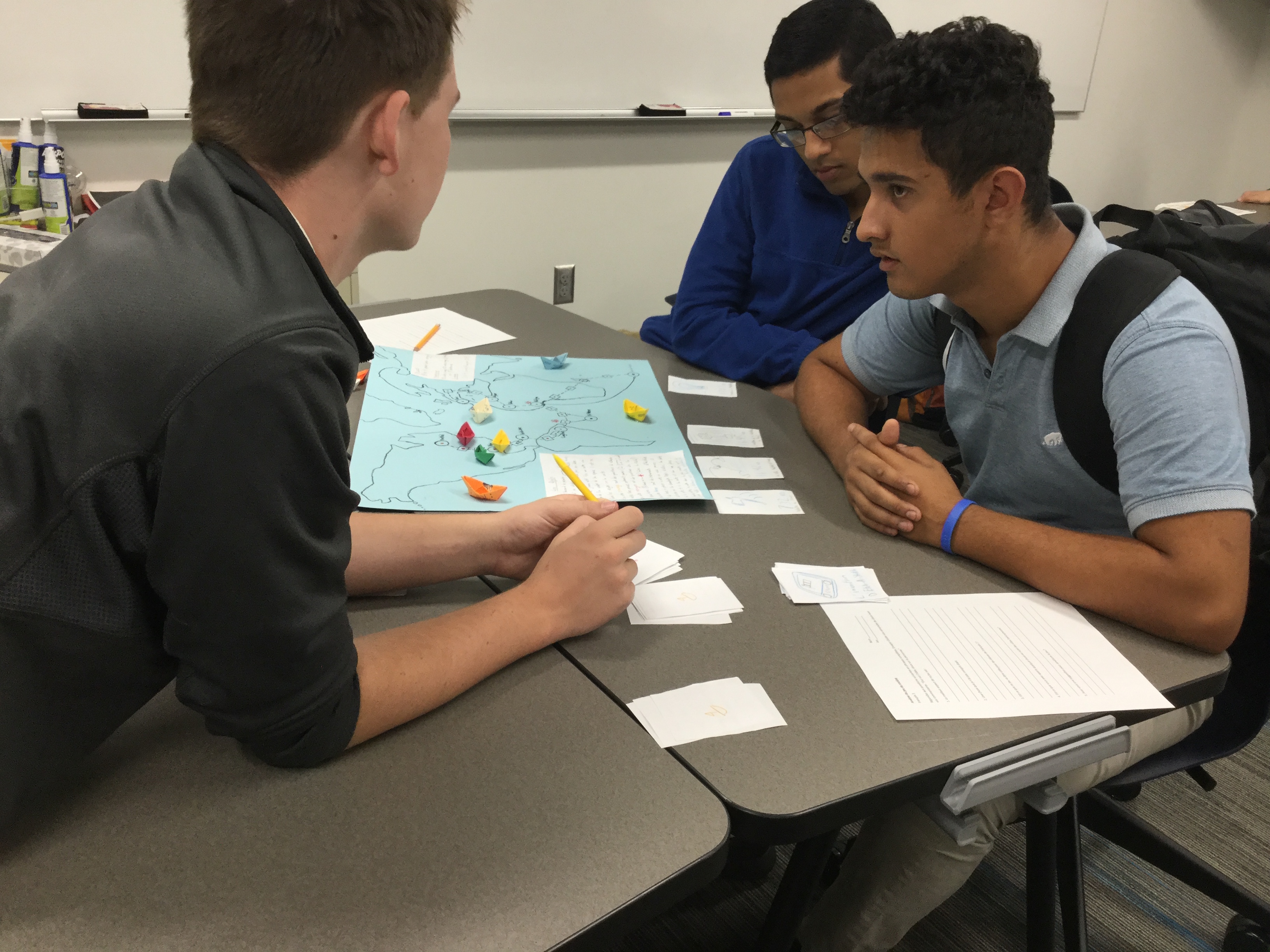
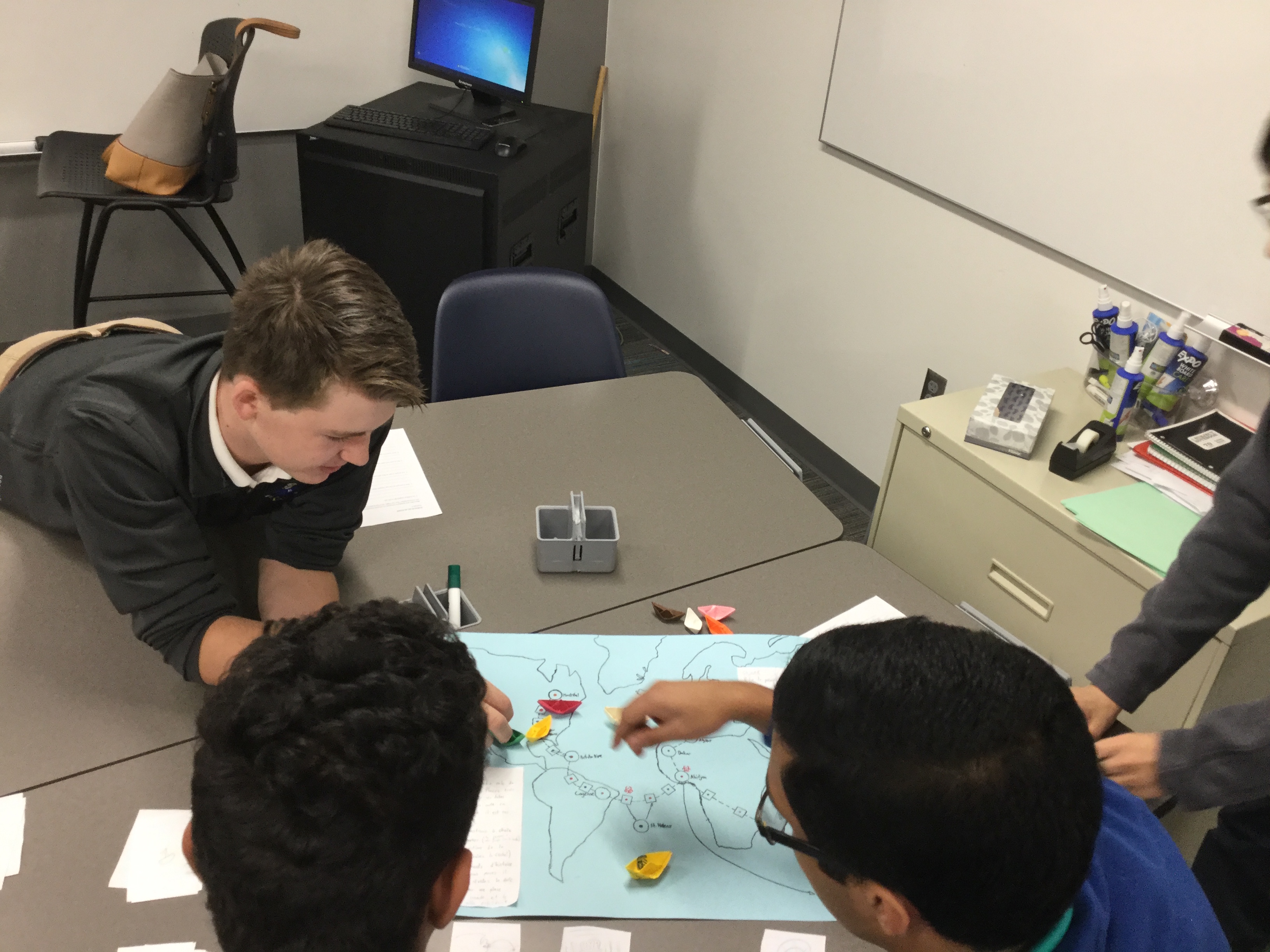
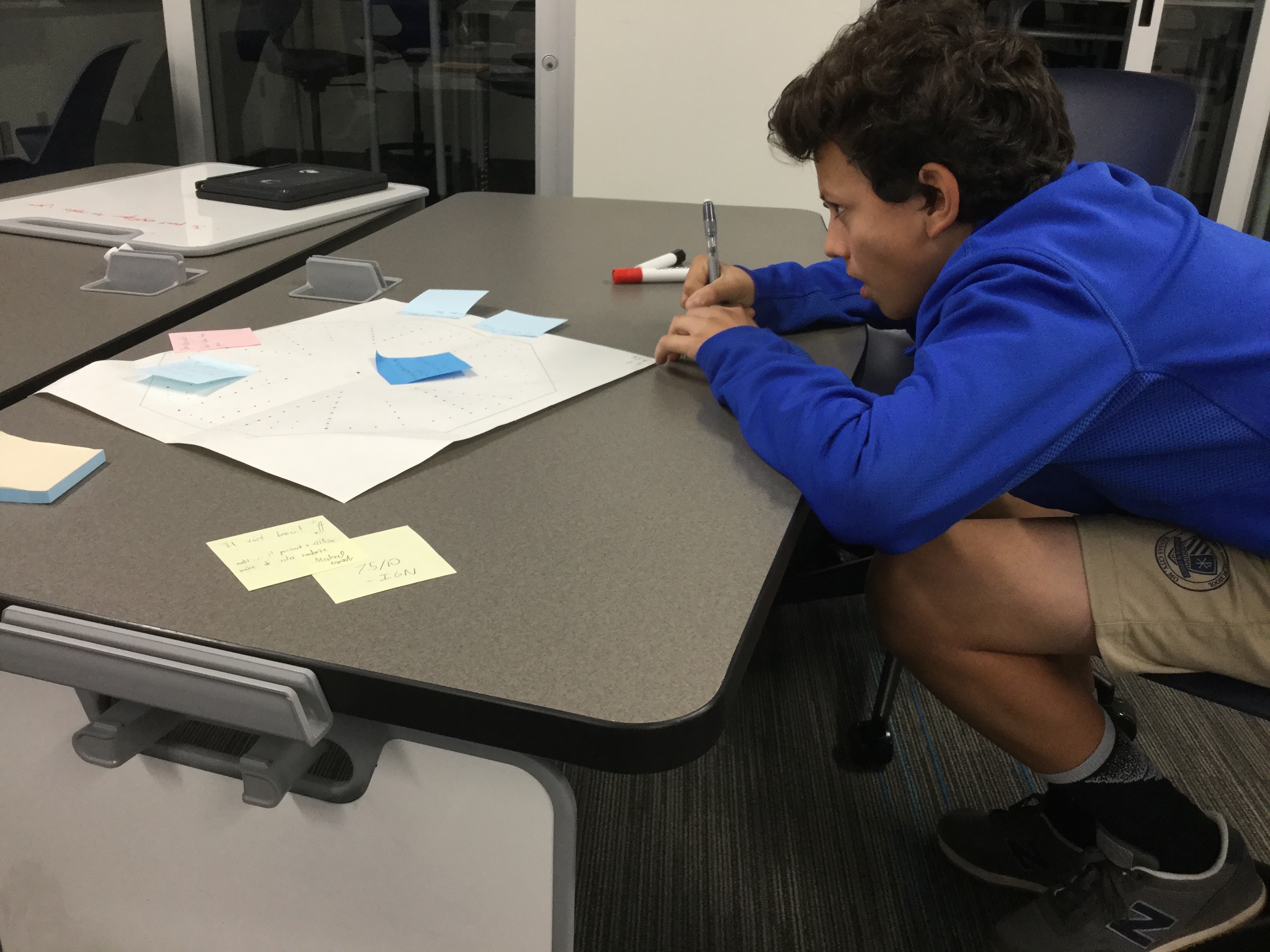
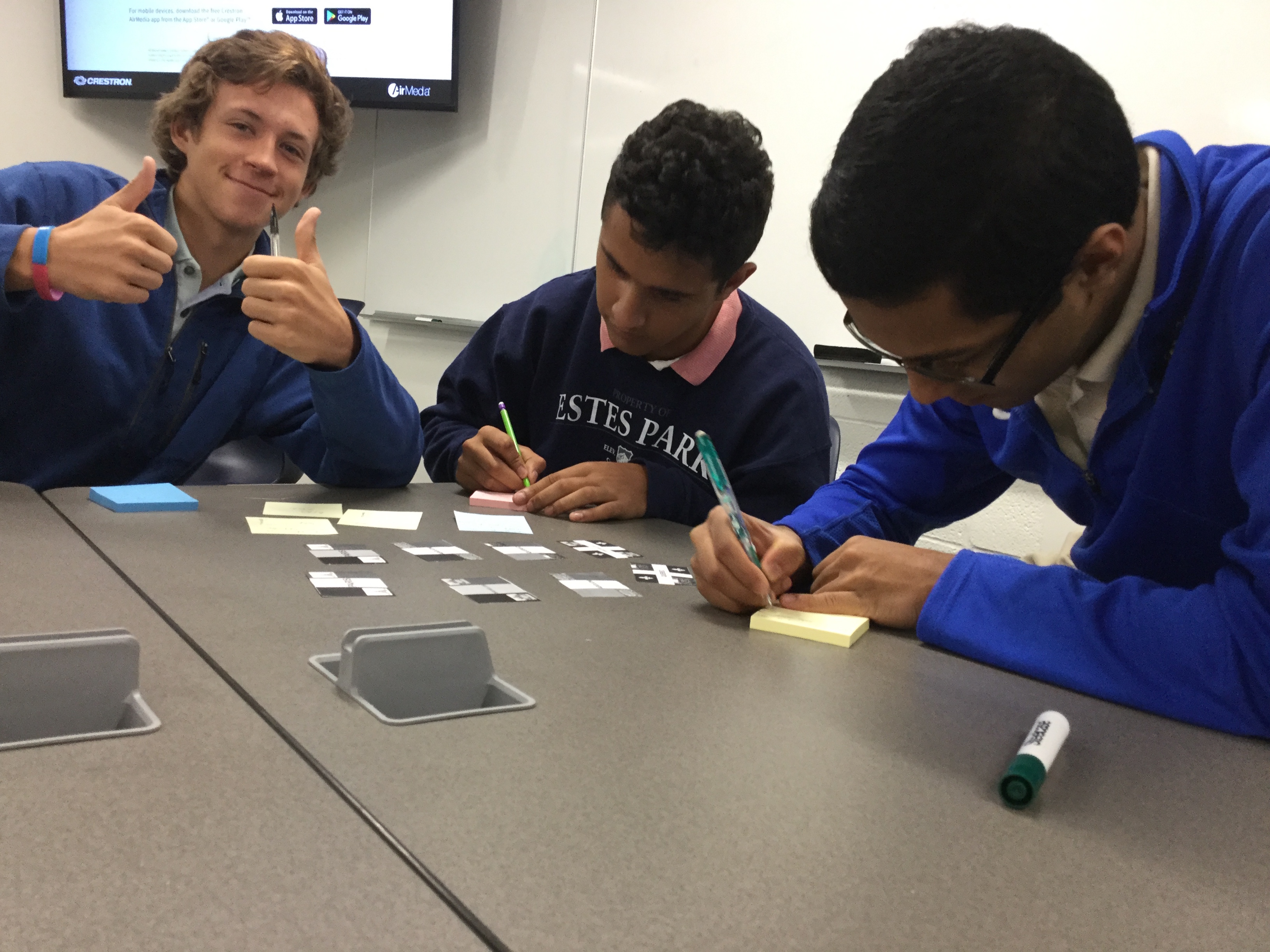
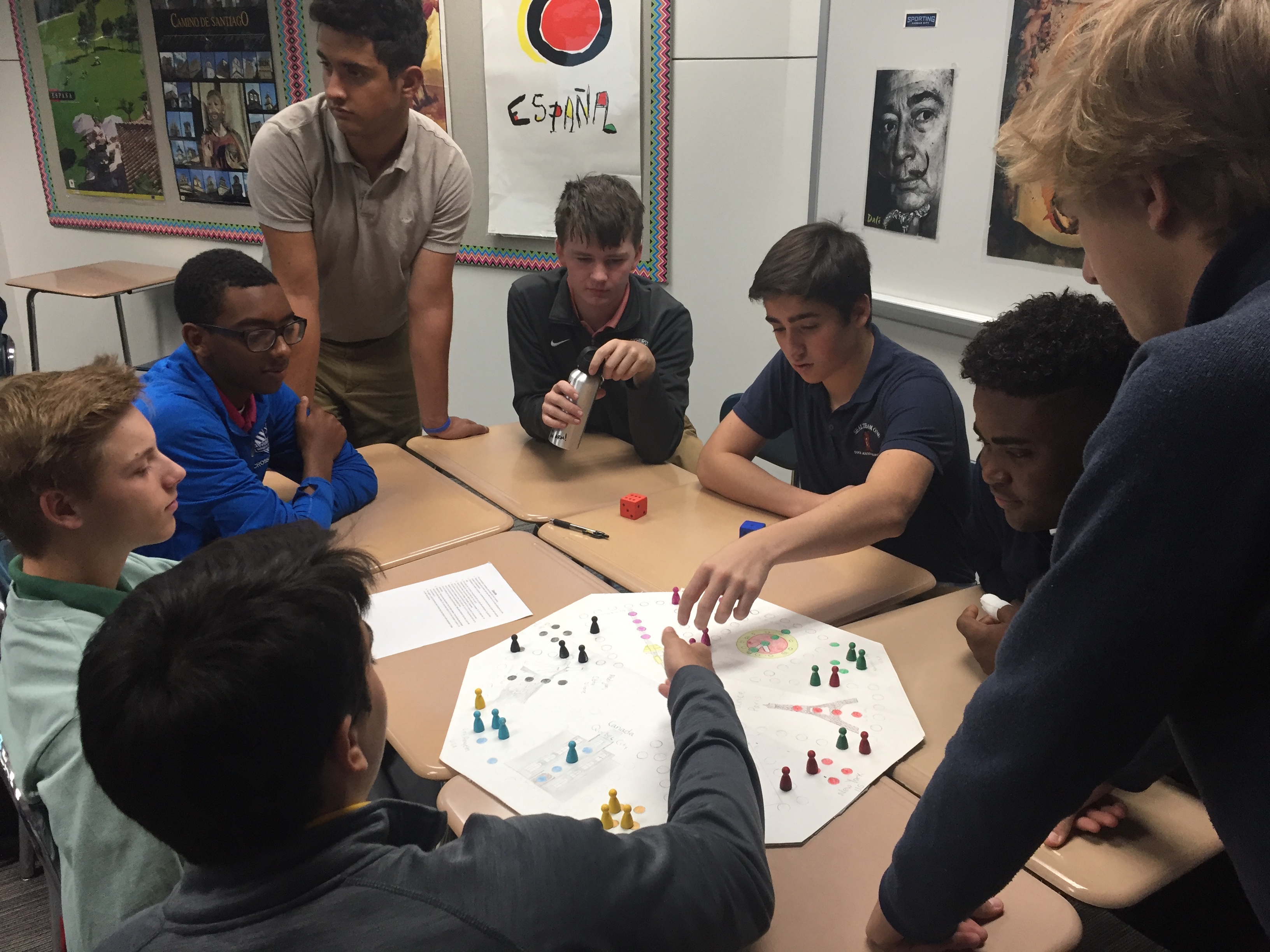
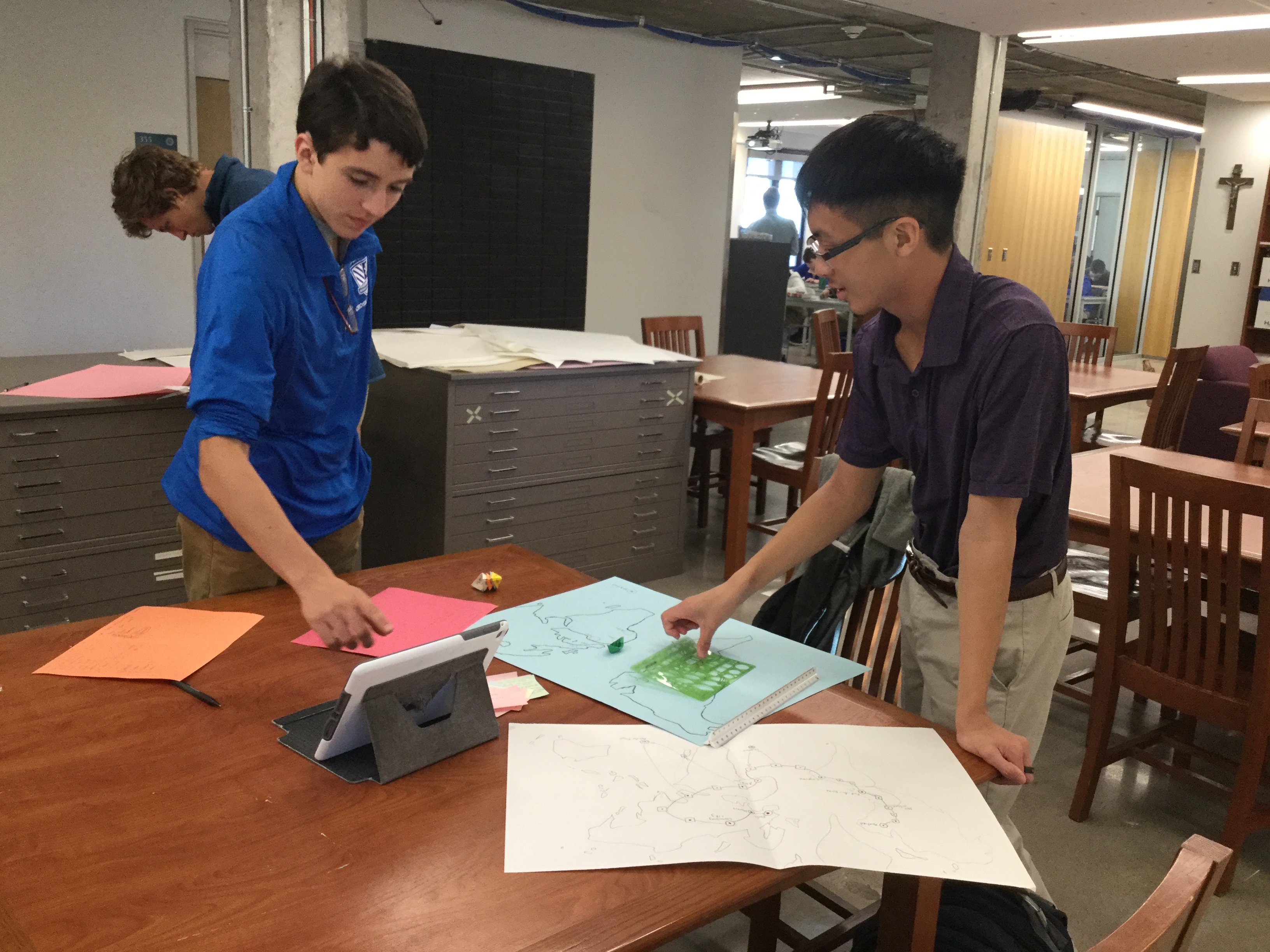
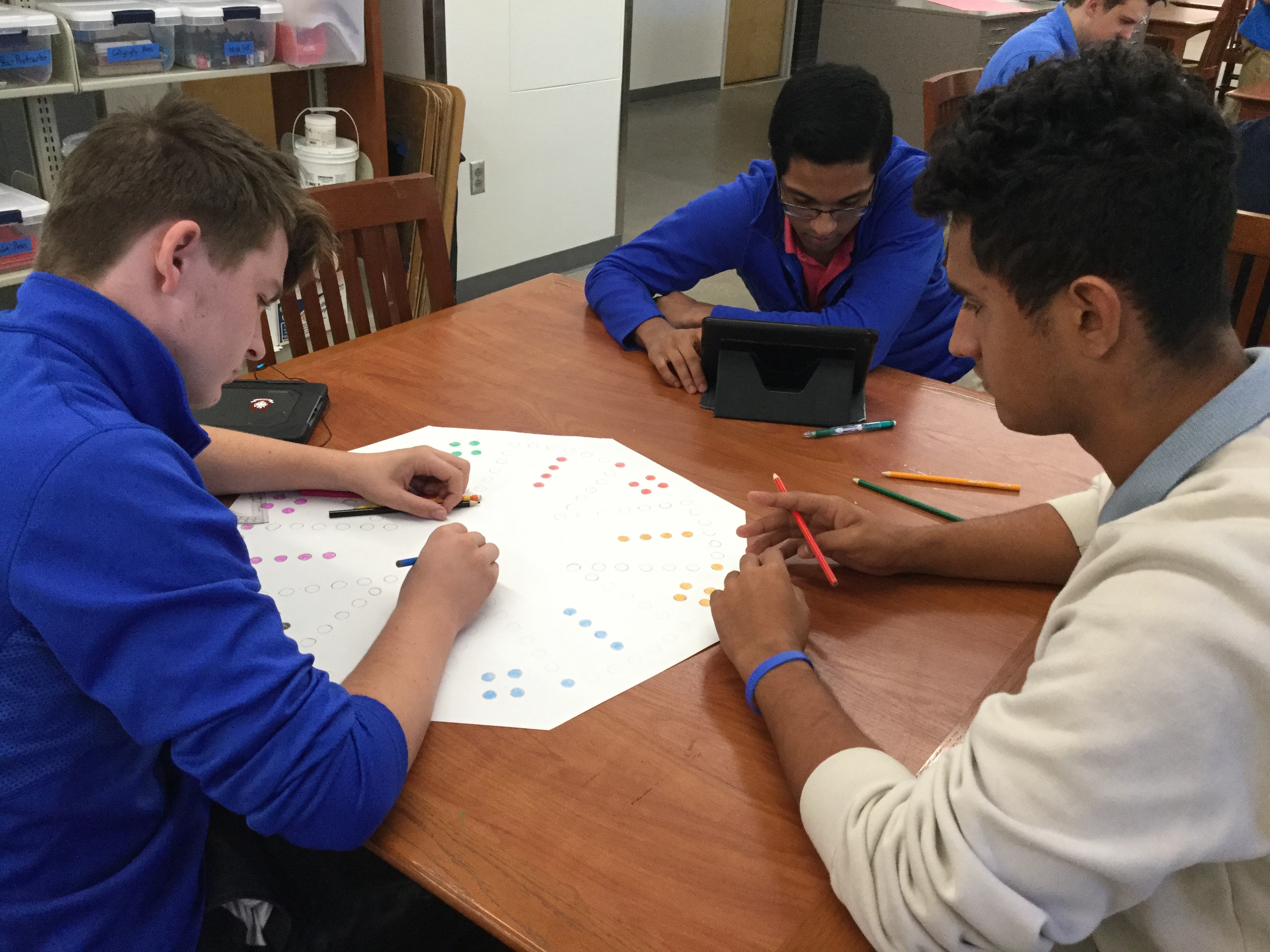
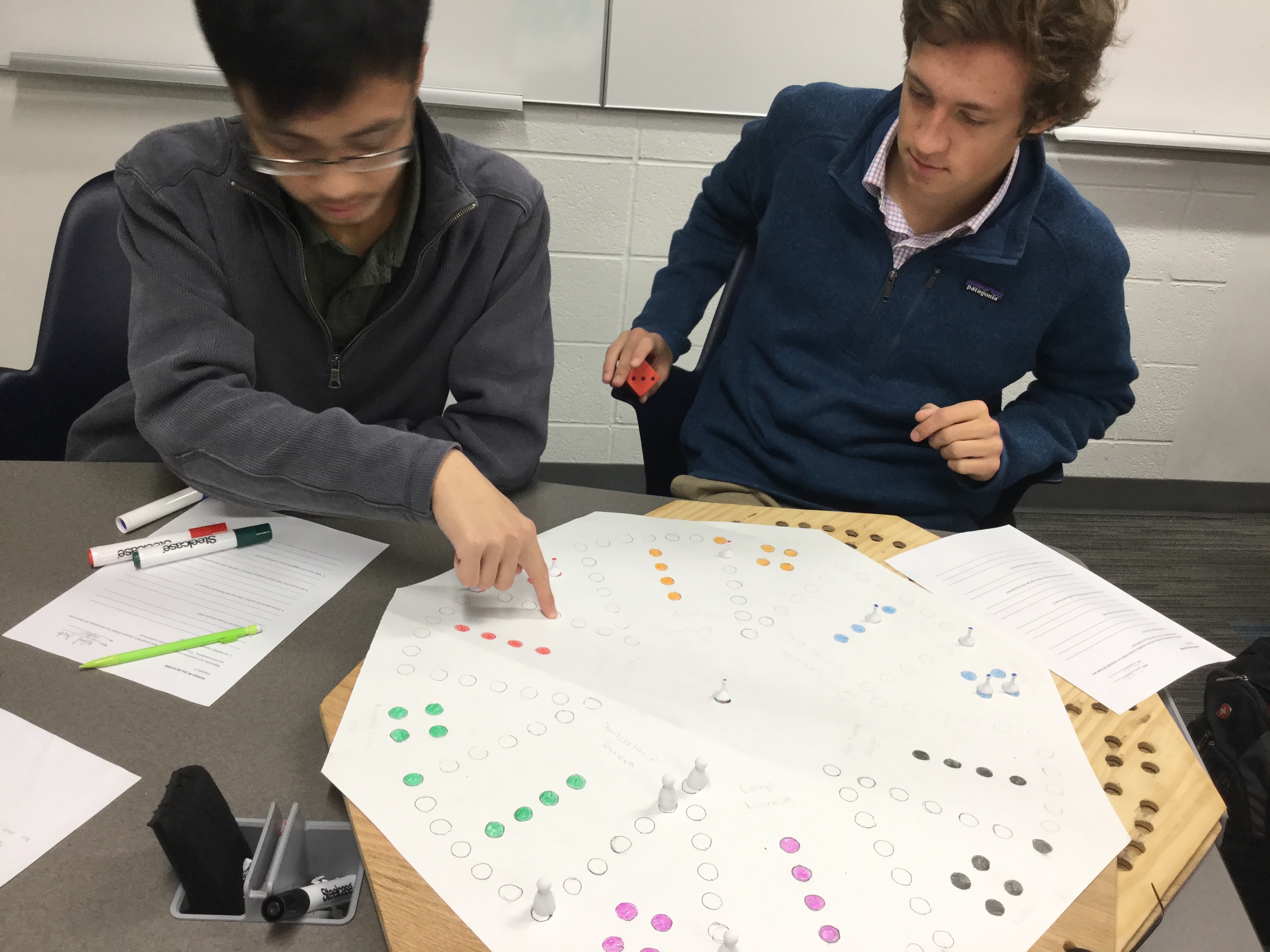
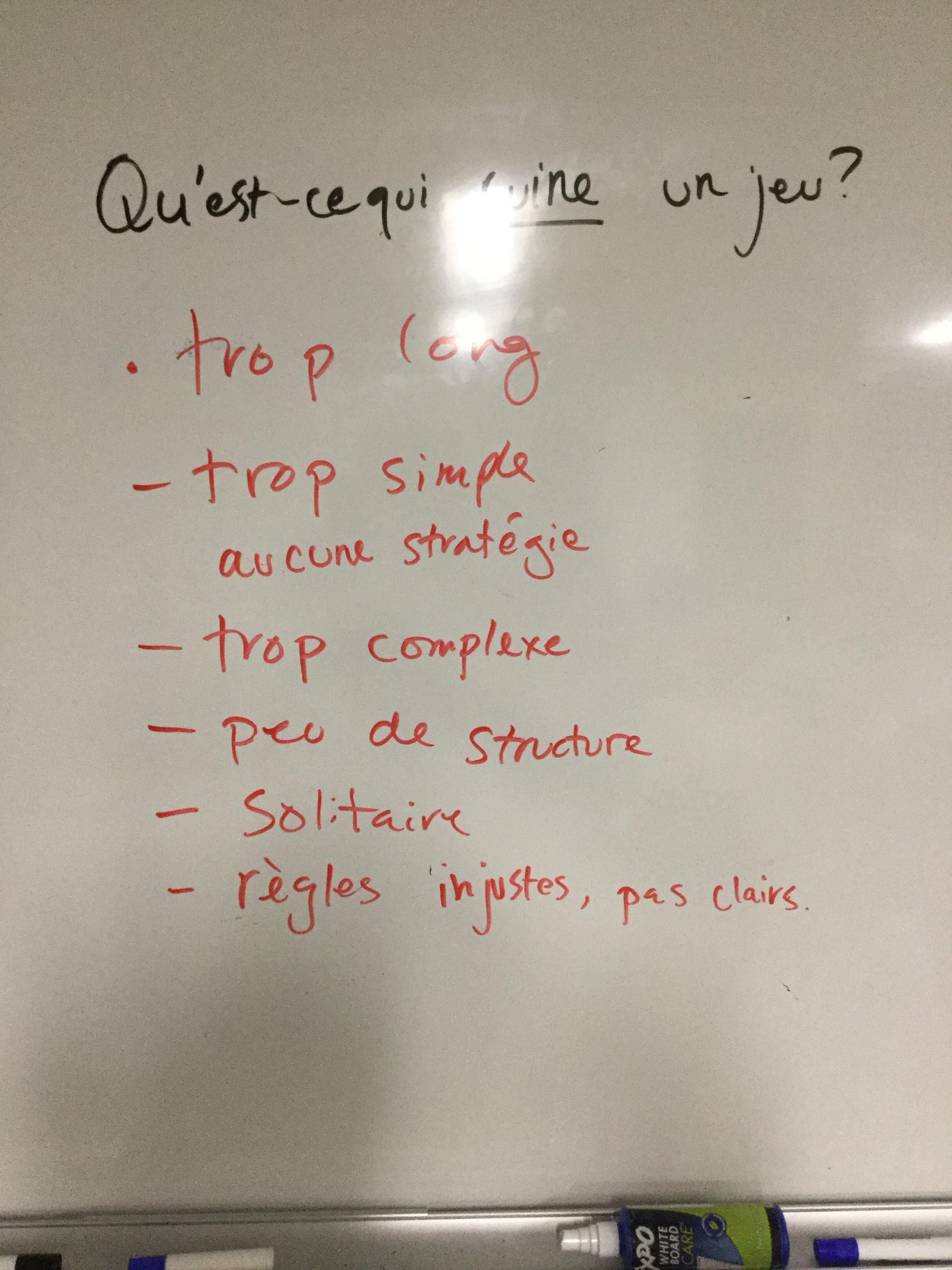
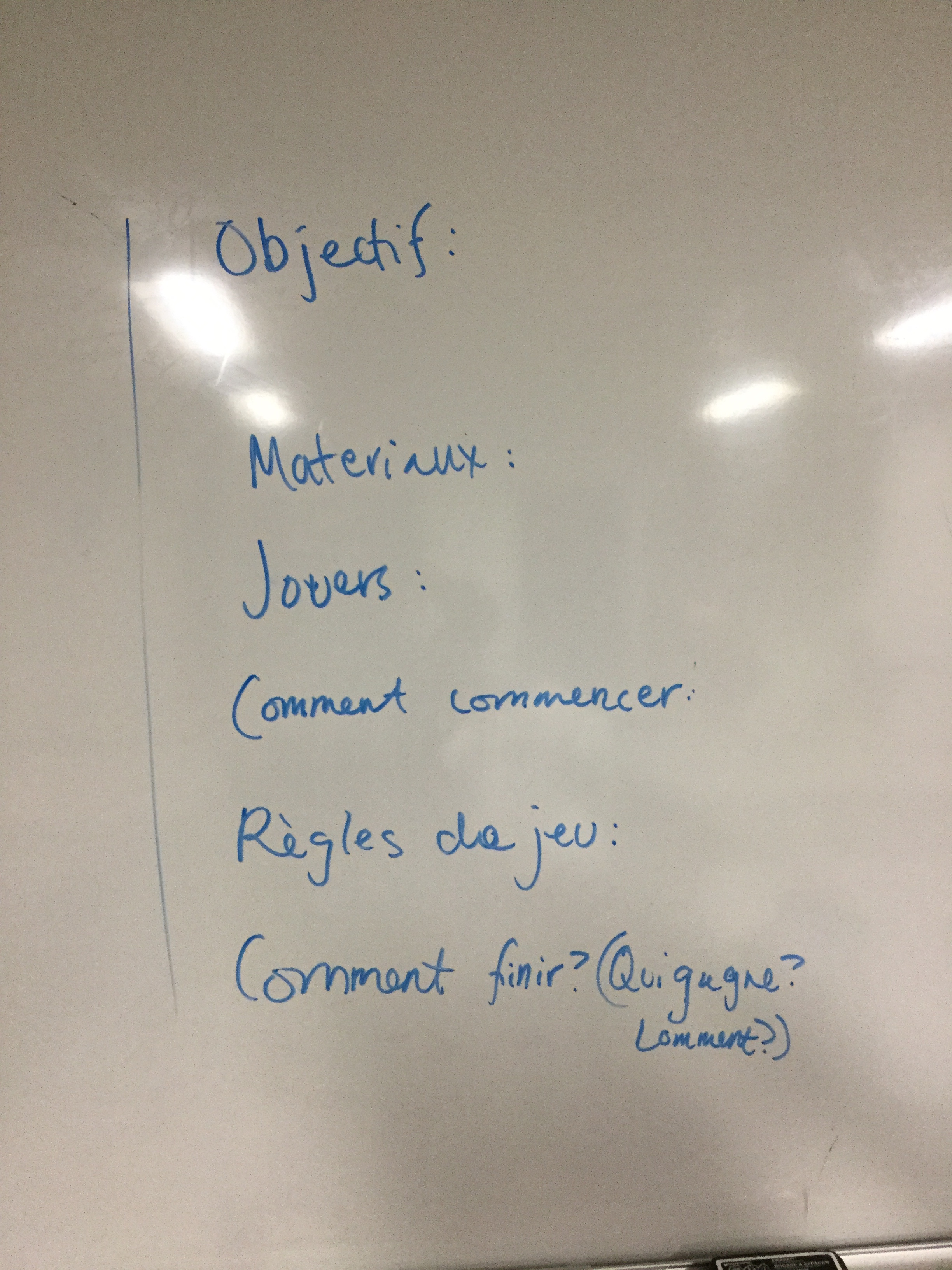
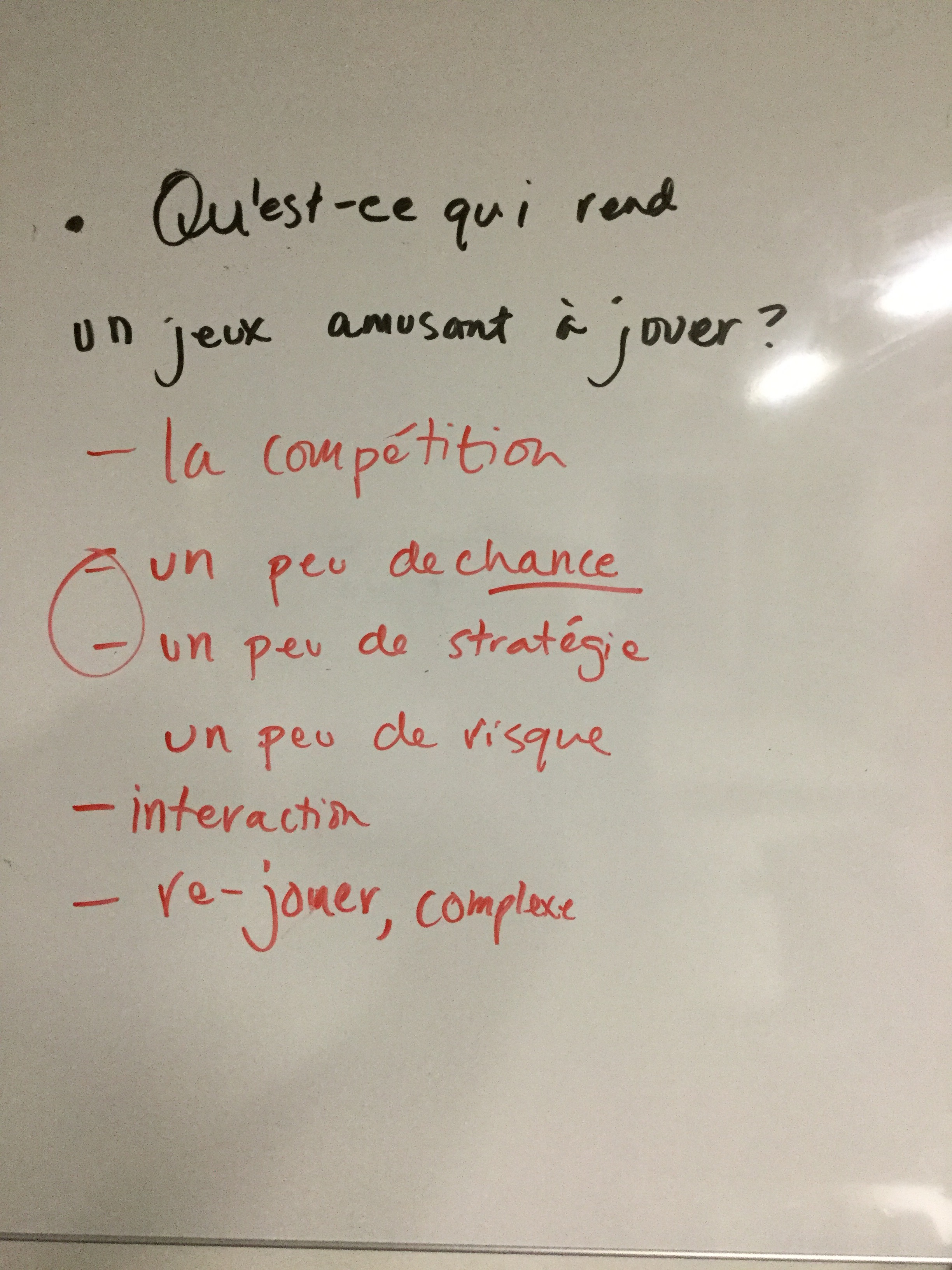

Comments